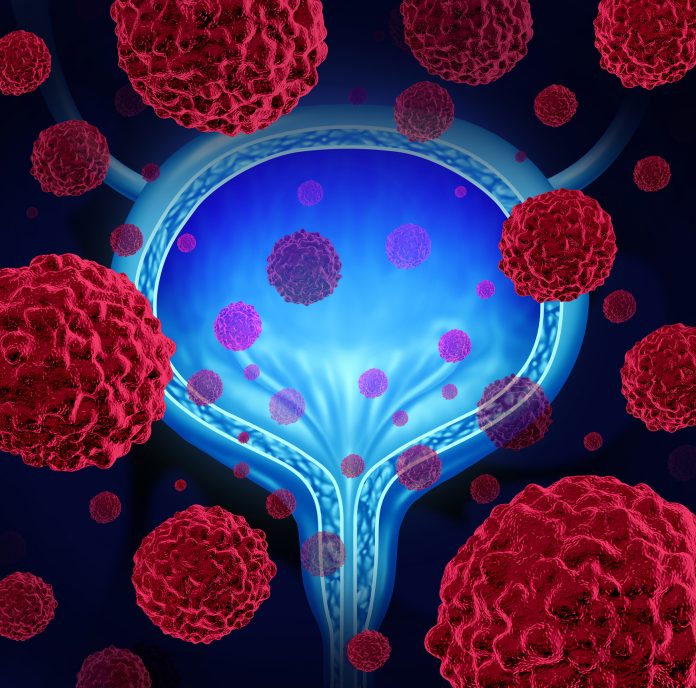
New longer-term results from the CheckMate 274 trial show that adjuvant immunotherapy with nivolumab after surgery and chemotherapy helped reduce cancer recurrence in patients with urothelial cancer of the bladder or other sites in the urinary tract that had invaded the muscle. This analysis showed that patients treated with immunotherapy had a 30% lower likelihood of developing a cancer recurrence. Patients with tumors expressing PD-L1 of 1% or more fared even better with a 45% lower chance of recurrence. The study results were presented at the American Urological Association (AUA) annual meeting.
The Phase III CheckMate 274 trial included 700 patients with high-risk muscle-invasive urothelial carcinoma (MIUC). After radical surgery and cisplatin-based chemotherapy, half received adjuvant nivolumab (353 patients), the other half placebo (356).
Earlier results of the CheckMate 274 trial published in June 2021 found that the percentage of patients who were alive and disease-free at 6 months was 74.9% with nivolumab and 60.3% with placebo. Among patients with a PD-L1 expression level of 1% or more, the percentage of patients was 74.5% and 55.7%, respectively. Until this trial, no immune-checkpoint inhibitor had shown efficacy as adjuvant therapy in patients with urothelial carcinoma at high risk for metastatic recurrence after radical surgery with curative intent. Thus, the phase 3 CheckMate 274 trial was conducted to evaluate the efficacy and safety of adjuvant nivolumab, as compared with placebo, in patients with muscle-invasive urothelial carcinoma (MIUC) after radical surgery.
This presentation included an extra five months of follow-up for a minimum of 11 months of evaluation up to two years. At 12 months, disease-free survival (DFS) was significantly improved with nivolumab (63.5%) over placebo (46.9%). In patients with PD-L1 =1%, DFS probability was 67.6% with immunotherapy compared with 46.3% with placebo. Improvement in DFS was observed with nivolumab for most subgroups analyzed, including age, sex, ECOG performance status, nodal status, use of prior cisplatin-based chemotherapy, and PD-L1 status.
“With longer follow-up, nivolumab continued to show clinically meaningful improvement in DFS versus placebo for patients with high-risk MIUC,” the authors write in their study abstract. “These results support adjuvant nivolumab as a standard of care for high-risk MIUC patients after radical surgery.
Surgery that removes the bladder or kidney and ureter has been the standard of care for patients with urothelial cancer that has entered surrounding muscle or lymph nodes, but approximately half of these patients later relapse with metastatic cancer. Unfortunately for these patients, no consensus has emerged regarding treatments after surgery that might reduce the risk of cancer recurrence.
These longer-term results appear to reinforce the earlier trial results that immunotherapy administered after surgery can decrease the risk of cancer recurrence. However, a previously reported phase 3 trial (IMvigor010) comparing adjuvant atezolizumab, a different anti–PD-L1 antibody, with observation in a similar population of patients with high-risk MIUC who had undergone surgery did not show a significant DFS difference. The reasons for the diverging results of these two phase III trials remain speculative.
Two other related trials are ongoing in this patient population to hopefully sort out the role of immunotherapy in invasive urothelial cancer. IMvigor011 (NCT04660344) is designed to evaluate adjuvant atezolizumab in patients with muscle-invasive UC who are circulating-tumor DNA–positive and therefore supposedly at particularly high risk for experiencing recurrence. AMBASSADOR (NCT03244384) is investigating postoperative pembrolizumab vs observation in muscle-invasive and locally advanced UC.













